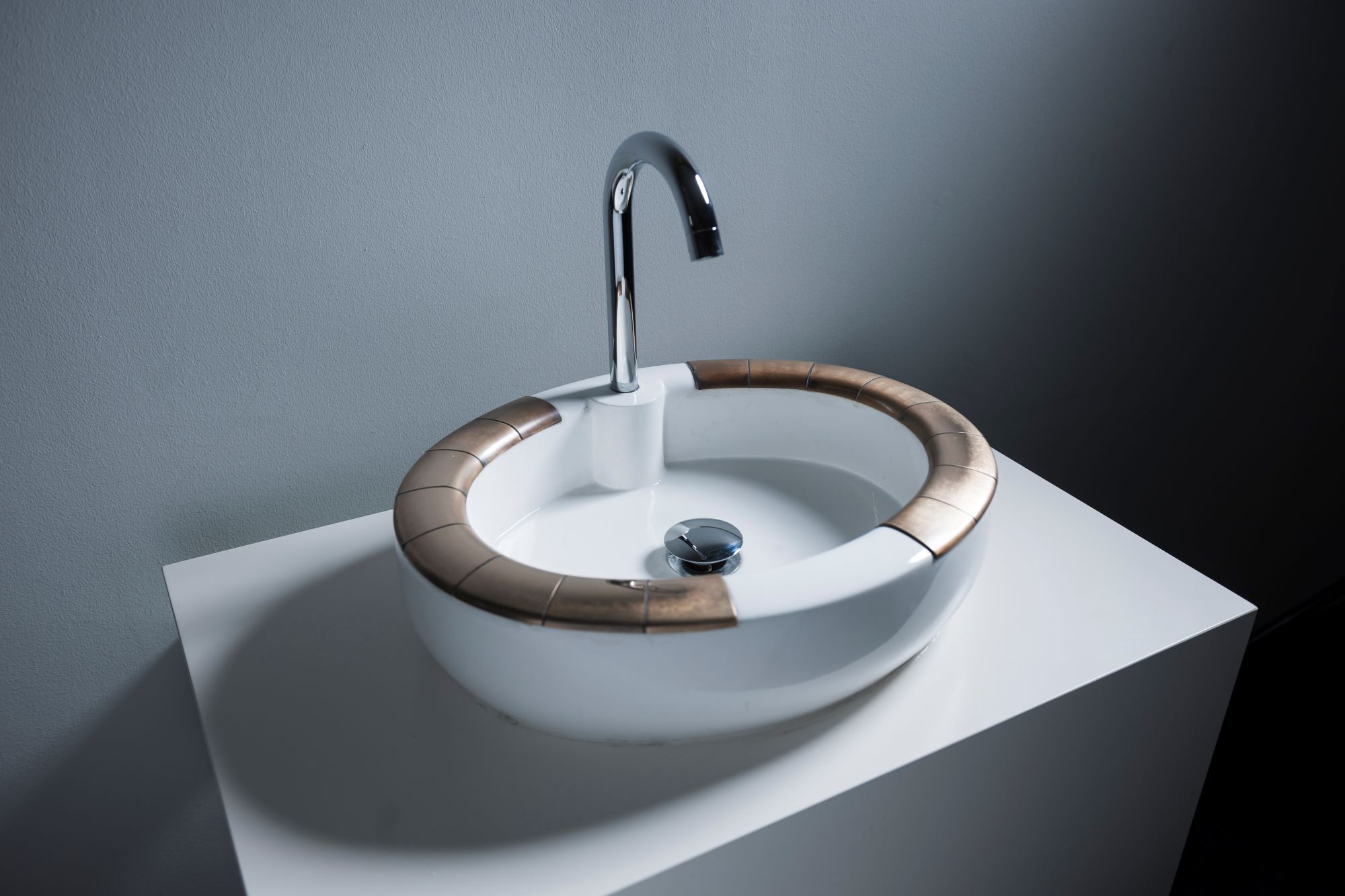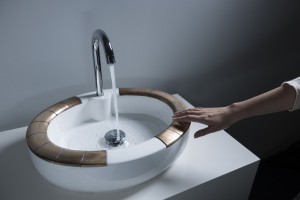Mizu
Mizu is a connected sink that utilizes traces of use as a design approach to both communicate and engage people in its function, as well as to situate the person with the role that the technology plays in their lives.
In collaboration with our Industrial Design master’s students, we have built Mizu, a ‘smart’ sink that utilizes a unique interaction paradigm. Gestures that are metaphorically related to the tasks the sink performs (as opposed to turning a faucet) are used to unmask the technology’s machinery. Hot water is procured by rubbing a portion of the basin rapidly, similar to how one would warm his own hands. It is cooled by gently tapping the same side, as if one was fanning a hot dish to cool it down. The force of the stream is made stronger with a long stroke that travels the length of the basin, almost as if to beckon more water from the sink. These interactions are made possible by sensors and along the basin. These sensors, made from bronze, also respond to these gestures by wearing in ways that reveal traces of how the sink has been used. As a connected object, the sink communicates with the water heater, so that not only the appliances learn the patterns of use, but so does the person using it via material traces.
These traces are accumulative and expressive and speak to our individual experiences as well as our relationship with the technology itself building a mutual, communicative, and thus ethical relationship in their ability to foster mutual learning (for the human, not just for the technology).
This project is part of the PhD Research: Designing with (and for) traces; Holly Robbins


Photo credit: Marcel Krijger
Outreach
- Exhibition: Dutch Design Week 2015: Mind the Step [LINK: www.ddw.nl/en/event/155]. October 2015
- Coverage: Visscher, Robert. “De Slimme wasbak kent zijn gebruiker.”
- Trouw: letter & geest. (Netherlands) 14 November 2015: 31
Grants
- Design United; Demonstrator’s Fund
Affiliates / Collaborators
- ITD Student groups
